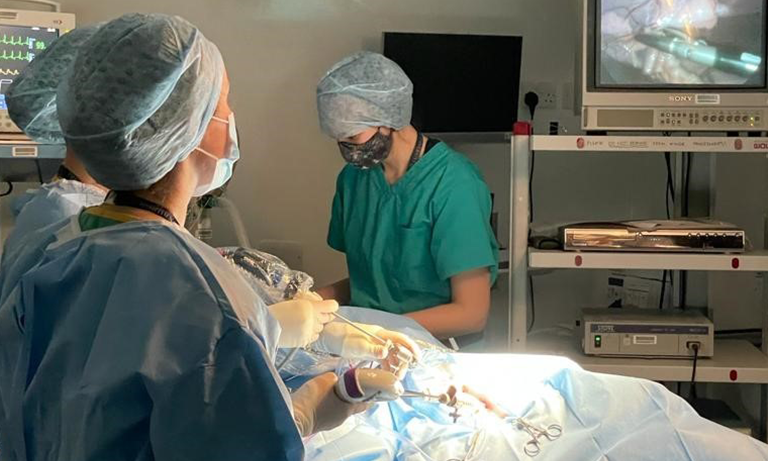The veterinary voice for animal welfare: reflecting on BVA’s updated Animal Welfare Strategy
11 Jul 2025
09 Sep 2025 | Louise Dingley
Louise Dingley, Lecturer in Veterinary Primary Care, Education and Leadership at the University of Lancashire, explores how veterinary professionals can educate through everyday practice, mentorship, and example, shaping the profession beyond classrooms.

I began my Postgraduate Certificate in Clinical Education in August 2020, partly as a distraction from the chaos of Covid. I’d always enjoyed hosting EMS students and supporting colleagues with clinical cases - but hadn’t considered ‘teaching’ as a part of my role. So I enrolled on the University of Edinburgh’s online PGCert, thinking it might open up some new career pathways. It was quite daunting being the only vet among a diverse cohort of medics, dentists, and nurses and not on a formal teaching track, yet I quickly saw how relevant medical education was to veterinary practice and how much we could learn from each other.
One of the first revelations was that the principles of teaching and learning (pedagogy or andragogy in the context of adult learning) apply far beyond lecture halls. I focused my learning on workplace-based education and realised I was already a part of veterinary education without even knowing it.
Teaching happens everywhere
When we think of veterinary education, we often picture lecture theatres and textbooks but some of the most powerful learning happens in everyday practice - during post-op cleanups, in the car to a farm visit, or even tea-time chats in the staff room. As Sir William Osler said, “Medicine is learned by the bedside and not in the classroom.” Students absorb knowledge not just from formal instruction, but from how we communicate, behave, and care.
The hidden curriculum
The ‘hidden curriculum’ refers to the informal lessons students learn by observing us. It’s how they understand what “normal” looks like in practice - how we prioritise welfare, interact as teams, manage stress, and uphold integrity. If you work in practice, you’re part of this curriculum. You’re teaching when you guide a student through a blood draw, explain a diagnosis, or support a colleague through an ethical dilemma. You don’t need a teaching title to be an educator.
Before my PGCert, I didn’t identify as one. I’d say, “I’m just a GP vet” or “I don’t do formal teaching” but if you work with students, new grads, or clients then you do teach, and your impact is often greater than you realise.
Why intentional education matters
Learning how to teach intentionally can be transformative. Creating psychologically safe learning environments, giving constructive feedback, and adapting to different learning preferences doesn’t just benefit students - it strengthens teams, improves client care, and fosters a culture of growth.
Leigh Hinsley, Head Nurse at YourVets Sheldon and postgraduate student at the University of Lancashire, shared her experience: “I’ve always trained the team, but the PGCert helped me see it as a skill worth developing. I used to deliver CPD that was basically death by PowerPoint! Now I run interactive workshops, and the feedback has been incredible. It’s made a real difference to our teams and their patients.”
Leigh’s message isn’t just about gaining a qualification, it’s about recognising the value of what she was already doing and gaining the confidence to do it better.
The ripple effect
Formal education training doesn’t have to mean becoming a university lecturer. It means enhancing the impact you already have. Being intentional in how you teach, mentor, and support others helps shape a profession that values learning, wellbeing, and collaboration.
Creating a learning culture in practice benefits everyone. It supports retention, mental health, and professional development - critical issues in today’s veterinary world.
Final thoughts
Next time you show a student how to place a catheter, discuss a tricky case with a colleague, or guide a client through a tough decision, remember you’re not just treating animals, you’re teaching people. And that makes you a vital part of veterinary education. Let’s champion education in practice, because what you teach, even informally, can shape the profession for years to come.
Get tailored news in your inbox and online, plus access to our journals, resources and support services, join the BVA.
Join Us Today